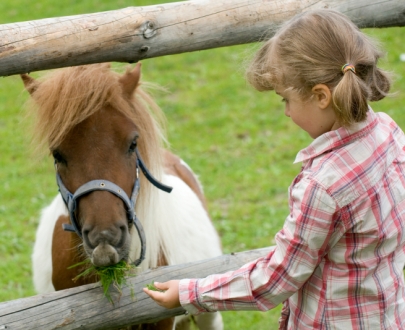
It really is good to be kind.
Two scientific findings are dramatically shifting how we look at kindness. The first is that kindness has more (and wider reaching) benefits than was recognized just a decade ago. The second is that researchers have underestimated the capacity for kindness in children. Together, this knowledge helps us to maximize our efforts to strengthen the Heart-Mind well-being of children.
Feeling good is just the tip of the iceberg when it comes to the benefits of being kind. Recent studies make the kindness-happiness-health connection stronger than ever:
-
Spending money[1] on others promotes happiness
-
Giving[2] leads to happiness in children
-
Caregiving[3] is associated with decreased mortality
-
The effect of volunteering[4] on cardiovascular risk factors in adolescents
-
Kindness boosts peer acceptance and wellbeing[5] in pre-adolescents
The takeaway message from these (and other) peer-reviewed research studies is that kind acts have the potential to spread the “good” of kindness into many areas of our lives.
When we accept that children are able to be kind, we can intentionally create more opportunities for those strengths to surface. This is in contrast to the traditional idea that society must mold children through different stages of development and “tame them” or “socialize” their natural aggressive tendencies. Even highly regarded developmental theorist Piaget[6], who has contributed much to understanding children’s growth and development, believed that children were unable to take another person’s perspective when they were very young. We now know that this is not true. Research has demonstrated that children as young as 3 months old notice kindness and goodness in others and can, indeed, take on other perspectives.
If being kind is good, and children are competent at being kind, how does this information change what we do?
-
Create opportunities that use and surface a child’s naturally kind strengths.
-
Give children and youth many opportunities to be kind and helpful.
- When unkind actions occur, choose an authoritative/inductive approach to parenting[7] which emphasizes communication between adult and child about the effects of actions on others.
Study participants (male and female adults) who were randomly assigned to spend money on other people experienced greater happiness than those assigned to spend money on themselves.
Published in 2012, this study shows that 'giving' leads to happiness in young children before the age of two. Of note, children are happier after engaging in 'costly giving' (give up their own treats).
In a study of older adults, individuals who cared for a spouse had lower rates of mortality than those who did not provide any care to their spouse. This study make the link between "helping" and the "longevity of the helper."
In a randomized controlled trial over 4 months, 10th grade students who volunteered one hour every week for four weeks significantly lowered their risk factors related to heart health.
In a study of urban 9-11 year olds, those that performed three acts of kindness per week (compared to a control group) showed improvements both in well-being and in peer acceptance (popularity).
Jean Piaget (1896 - 1980) was a psychologist who developed a theory of cognitive child development. His theory helped to describe the evolution of a child's capacity to learn as he or she grows. One element of his theory that is now starting to be disputed is his assertation that before the age of 18 months, children are not capable of complex thinking (such as understanding kindness).
"Inductive Parenting" is a term to describe a relationship approach to parenting that balances limits, rules and consequences with flexibility. The key is for decision making to involve both parents and children (although the final decision remains the responsibility of the parent).